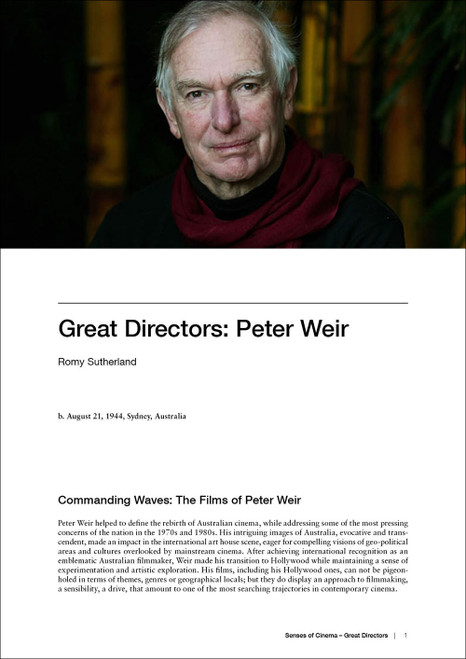Product Overview
Article sample:
Federico Fellini, a canonical name of personal expression and artistic fantasy in the cinema, had no formal technical training in his profession. Born in the seaside town of Rimini in Italy in 1920, he quit the provinces for Rome at age 18. Enrolled in law school, he abandoned the degree. He never considered attending Rome's Centro Sperimentale di Cinematografia, whose graduates he would later collaborate with. And unlike his contemporaries, he never frequented the cinema clubs that screened the best Italian directors' films and international titles from France, Germany and Russia. When pressed for his influences, Fellini preferred Chaplin, Buster Keaton, Laurel and Hardy, the Marx brothers, Pietro Germi, and Buñuel (with his black humor) to 'cine-club' names such as Dreyer, Griffith and Eisenstein. Young Fellini supported himself as a wandering caricaturist until hired by Marc'Aurelio in 1939. The famed humor bi-weekly served as an unofficial training ground for scriptwriters and directors of the postwar period.
About Senses of Cinema:
Senses of Cinema is an online journal devoted to the serious and eclectic discussion of cinema. We believe cinema is an art that can take many forms, from the industrially-produced blockbuster to the hand-crafted experimental work; we also aim to encourage awareness of the histories of such diverse forms. As an Australian-based journal, we have a special commitment to the regular, wide-ranging analysis and critique of Australian cinema, past and present. Senses of Cinema is primarily concerned with ideas about particular films or bodies of work, but also with the regimes (ideological, economic and so forth) under which films are produced and viewed, and with the more abstract theoretical and philosophical issues raised by film study.







